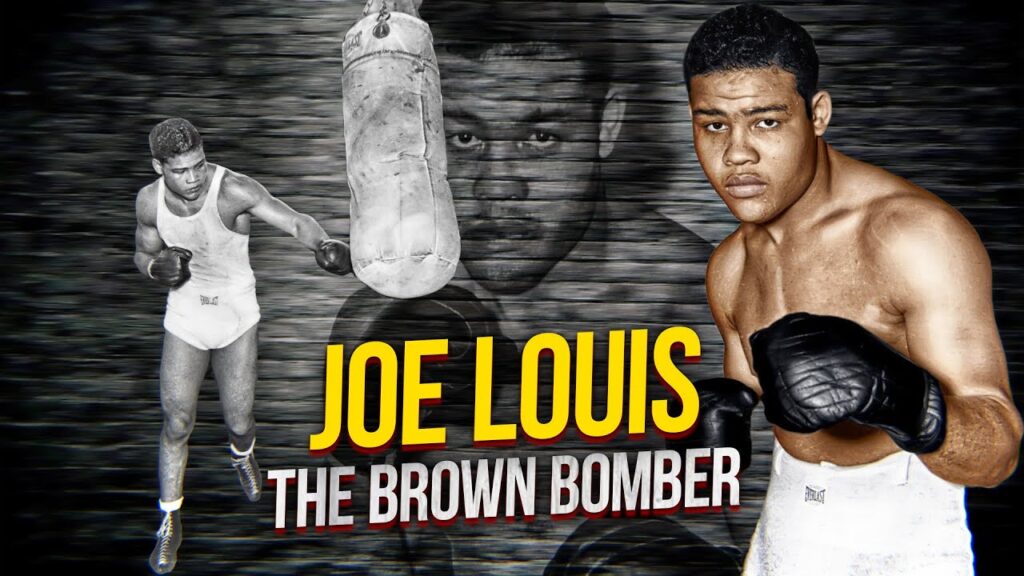Joe Louis 5 Questions Quiz

Joe Louis 5 Questions Quiz. Step into the ring and relive the legacy of Joe Louis, one of boxing’s all-time greats, with fballQuiz.xyz! Known as the “Brown Bomber,” Joe Louis dominated the heavyweight division and became a symbol of strength and resilience in the face of adversity.
Take on our engaging quizzes to test your knowledge of his legendary career, including his record-breaking title defenses, iconic matches, and impact beyond the sport. Explore the remarkable journey of a champion who unified the world during challenging times.
Visit fballQuiz.xyz today and immerse yourself in the life and legacy of Joe Louis. Are you ready to prove your knowledge of this boxing icon? Dive into the quiz now!
Results
Oh You Failed But No worries! You can always revisit and finish the quiz later. Positive and informative

#1. Joe Louis was a legendary athlete in which sport?

#2. What was Joe Louis’s famous nickname?

#3. Joe Louis held the heavyweight championship title for how many years?

#4. Joe Louis’s historic fight against Max Schmeling in 1938 symbolized resistance against what?

#5. In which year was Joe Louis inducted into the International Boxing Hall of Fame?
About Joe Louis

Joe Louis, a name synonymous with power, dignity, and a profound impact that transcended the world of boxing, is considered one of the greatest heavyweight champions of all time. Born Joseph Louis Barrow on May 13, 1914, in Lafayette, Alabama, his journey from the sharecropper’s son to a national hero is a powerful testament to his talent, resilience, and the social significance of his victories.
Louis’s early life was marked by hardship and poverty. His family moved to Detroit during the Great Migration, seeking better opportunities. It was in Detroit that Louis discovered boxing, initially using it as a means of self-defense. He quickly demonstrated a natural aptitude for the sport, possessing exceptional power and a calm, calculating demeanor in the ring.
Louis began his professional boxing career in 1934, rapidly rising through the ranks. His devastating knockout power earned him the moniker “The Brown Bomber,” a nickname that, while intended to generate publicity, also carried the weight of racial prejudice prevalent at the time.
One of the most defining aspects of Louis’s career was the social and political context in which he fought. During the 1930s and 1940s, racial tensions were high in the United States, and the rise of Nazi Germany added another layer of complexity. Louis’s victories became symbolic victories for African Americans and for the fight against fascism.
His rivalry with German boxer Max Schmeling became a powerful symbol of the struggle between democracy and Nazism. Schmeling’s victory over Louis in 1936 was exploited by Nazi propaganda. However, Louis’s rematch victory in 1938, a first-round knockout, became a moment of national unity and a powerful blow against the Nazi regime. The fight was broadcast on the radio to millions, and Louis’s victory was celebrated across the country, particularly within the African American community.
Louis won the heavyweight championship in 1937, defeating James J. Braddock. He then embarked on a remarkable reign as champion, holding the title for a record 11 years and 8 months, defending it 25 times. This period, known as the “Brown Bomber era,” saw Louis become a national hero and a symbol of hope during a time of great social and political upheaval.
Beyond his impressive record and knockout power, Louis was known for his sportsmanship and dignity. He conducted himself with grace and humility, both inside and outside the ring. He became a role model for people of all races, transcending the boundaries of sport and becoming a symbol of American ideals.
During World War II, Louis enlisted in the U.S. Army, serving in a segregated unit. He toured the country, putting on boxing exhibitions to raise morale and funds for the war effort. His service further solidified his status as a national hero and a symbol of patriotism.
After retiring from boxing, Louis faced financial difficulties, partly due to mismanagement and unpaid taxes. He worked as a greeter at Caesars Palace in Las Vegas, a job that allowed him to maintain a public presence and earn a living.
Joe Louis’s legacy extends far beyond his accomplishments in the ring. He was a symbol of hope and resilience during a challenging period in American history. His victories were not just personal triumphs but also symbolic victories against racism and oppression. He is remembered not only as a great boxer but also as a cultural icon who helped to break down racial barriers and pave the way for future generations.







